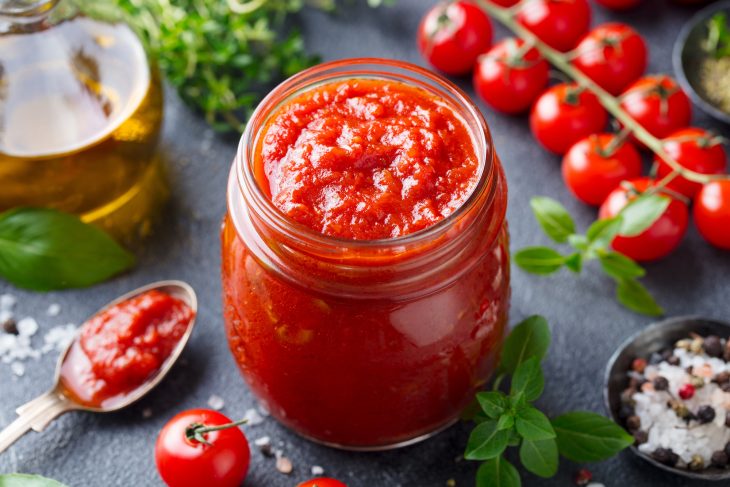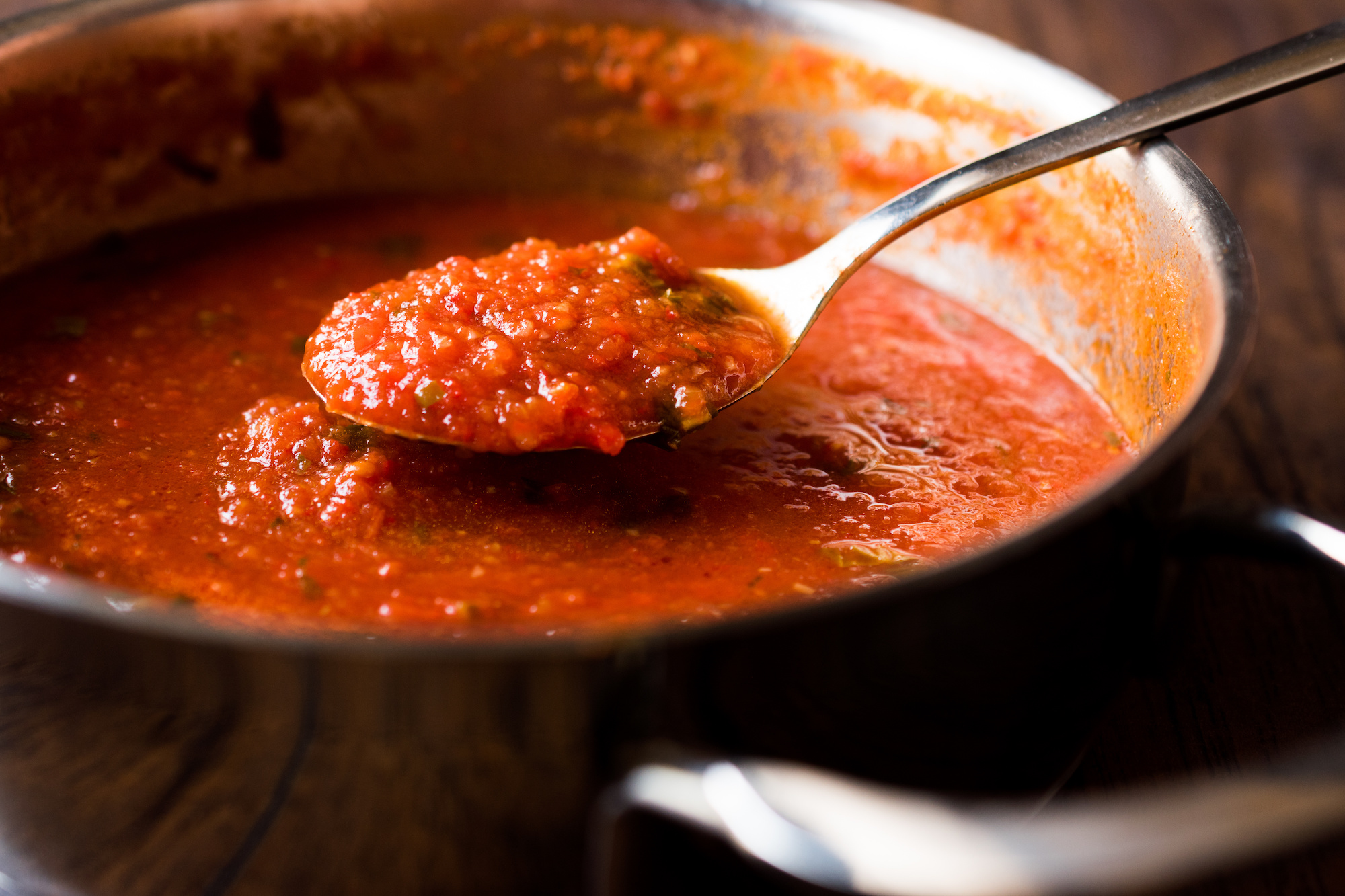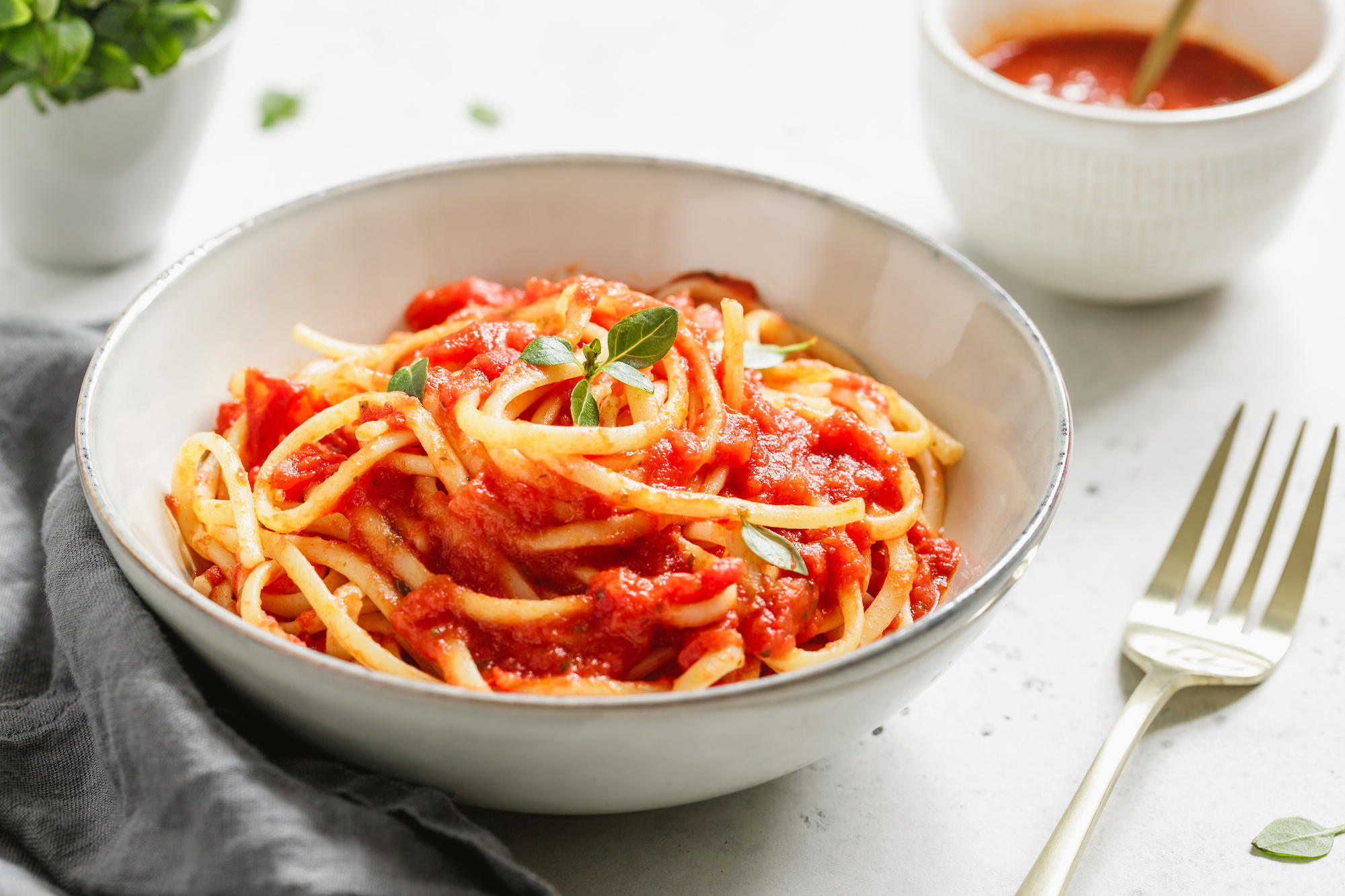
Tomato sauce is a staple in many kitchens, adding a burst of flavor to countless dishes. Whether used as a base for pasta, a topping for pizza, or a sauce for meatballs, tomato sauce has become an integral part of cuisines worldwide. In this article, we delve into the world of tomato sauce nutrition to uncover the facts behind this versatile condiment.
Caloric Content
The calorie content of tomato sauce can vary depending on the specific recipe and serving size. On average, a 1/2-cup serving of tomato sauce contains approximately 40 to 60 calories. Keep in mind that additional ingredients or variations in preparation can affect the overall calorie count.
Carbohydrate Content
Tomato sauce is primarily composed of carbohydrates, which come from the natural sugars present in tomatoes. Carbohydrates provide energy for the body and are an essential part of a balanced diet. A 1/2-cup serving of tomato sauce typically contains around 8 to 10 grams of carbohydrates.
Protein and Fat Content
While tomato sauce is not a significant source of protein or fat, it does contain small amounts of both. A 1/2-cup serving of tomato sauce generally provides around 1 to 2 grams of protein and less than 1 gram of fat. The protein and fat content may vary slightly depending on the specific brand or homemade recipe.

Fiber Content
Tomato sauce can contribute to your dietary fiber intake and help promote a feeling of fullness, which is important for digestive health.
Antioxidants
Tomato sauce contains lycopene, which has been associated with a reduced risk of heart disease by helping to lower LDL cholesterol levels and support cardiovascular health. Moreover, the antioxidant properties of lycopene can also help reduce the risk of certain cancers, particularly prostate cancer.
Micronutrients
Tomato sauce also contains various micronutrients such as vitamin C, vitamin A, and potassium. Potassium, in particular, is important for maintaining healthy blood pressure levels
Sodium Considerations
It’s important to be mindful of the sodium content in tomato sauce, especially for individuals with specific dietary restrictions or concerns. Some store-bought tomato sauces can be high in sodium, which may be a concern for those watching their sodium intake due to health conditions like high blood pressure. Opting for low-sodium or homemade tomato sauce can be a healthier choice.

Conclusion
Tomato sauce is not only a delicious and versatile condiment but also offers various nutritional benefits. Its low-calorie and nutrient-rich profile make it a welcome addition to a well-rounded diet. Whether enjoyed as part of a hearty pasta dish or used as a flavorful base for a pizza, tomato sauce adds a touch of tangy goodness to elevate any meal.
Frequently Asked Questions (FAQs)
Can tomato sauce be a healthy addition to my diet?
Yes, tomato sauce can be a healthy addition to your diet. It is low in calories and packed with essential vitamins, minerals, and antioxidants. However, be mindful of the sodium content and choose low-sodium options or make your own sauce to control the amount of salt.
Is homemade tomato sauce healthier than store-bought options?
Homemade tomato sauce allows you to have control over the ingredients and can be a healthier choice as you can avoid added sugars, preservatives, and excessive sodium. However, some store-bought options offer low-sodium or organic varieties that can also be a good choice.
Can tomato sauce help with heart health?
Tomato sauce contains lycopene, a powerful antioxidant that has been associated with potential heart health benefits. Consuming tomato sauce as part of a balanced diet, along with other heart-healthy lifestyle choices, may support cardiovascular well-being.
Is tomato sauce suitable for individuals with dietary restrictions, such as gluten intolerance or lactose intolerance?
Tomato sauce is naturally gluten-free and lactose-free, making it suitable for individuals with gluten intolerance or lactose intolerance. However, it’s essential to check the labels of store-bought sauces to ensure they don’t contain any hidden gluten or lactose-based ingredients.
Can I freeze tomato sauce for future use?
Yes, tomato sauce can be frozen for future use. Store it in airtight containers or freezer bags, leaving some room for expansion, and label them with the date. Frozen tomato sauce can typically be stored for up to three months.
Was this page helpful?
Our commitment to delivering trustworthy and engaging content is at the heart of what we do. Each fact on our site is contributed by real users like you, bringing a wealth of diverse insights and information. To ensure the highest standards of accuracy and reliability, our dedicated editors meticulously review each submission. This process guarantees that the facts we share are not only fascinating but also credible. Trust in our commitment to quality and authenticity as you explore and learn with us.
